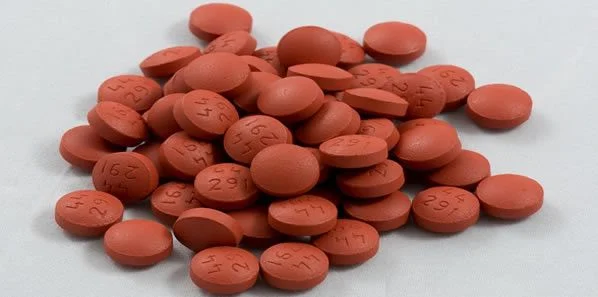A new study published in JAMA reveals that the use of non-steroidal anti-inflammatory drugs (NSAIDs) in patients on antithrombotic therapy after a heart attack is associated with an increased risk of bleeding and cardiovascular events such as a heart attack, stroke or cardiovascular death, even after short-term treatment.
Current guidelines recommend the use of dual antithrombotic therapy in patients with MI for up to 12 months and one agent thereafter. Bleeding risks associated with antithrombotic agents are increased by NSAIDs. In addition, NSAID agents such as ibuprofen may also impede the antithrombotic effects of aspirin as well as increase the risk of cardiovascular events. This is a public health concern since the use of NSAIDs is quite widespread.
The researchers examined the risk of bleeding and cardiovascular events among patients with prior MI and on antithrombotic and NSAID therapy. They used nationwide administrative registries in Denmark and included 61,971 patients 30 years or older admitted with first-time MI and alive 30 days after hospital discharge. 34 percent of the patients filled at one NSAID prescription.
During a median follow-up of 3.5 years, the study showed that there were a total number of 18,105 deaths, 5,288 bleeding events and 18,568 cardiovascular events. Analysis showed that there was twice the risk of bleeding with NSAID treatment compared with no NSAID treatment. Cardiovascular risk and the risk of bleeding were also higher in patients on NSAID treatment, regardless of antithrombotic treatment, the type of NSAIDs or the duration of use.
“There was no safe therapeutic window for concomitant NSAID use, because even short-term (0-3 days) treatment was associated with increased risk of bleeding compared with no NSAID use. Confirming previous studies and despite increased bleeding complications, NSAIDs were not associated with decreased cardiovascular risk. More research is needed to confirm these findings; however, physicians should exercise appropriate caution when prescribing NSAIDs for patients who have recently experienced MI.” the authors conclude.
In an accompanying editorial, Charles L. Campbell, M.D., of the University of Tennessee-Chattanooga, and David J. Moliterno, M.D., of the University of Kentucky, Lexington, reiterate that this evidence should be used as a reminder with respect to the use of NSAIDs. There is no doubt that these medications are sometimes necessary for improving the quality of life but in patients with a history of recent MI, they should be used with caution. They also add that the effect of NSAIDs could be even greater because they are available as over-the-counter drugs and physicians could be unaware that patients may be taking NSAIDs.
Source: JAMA
Image Credit: Flickr.com










